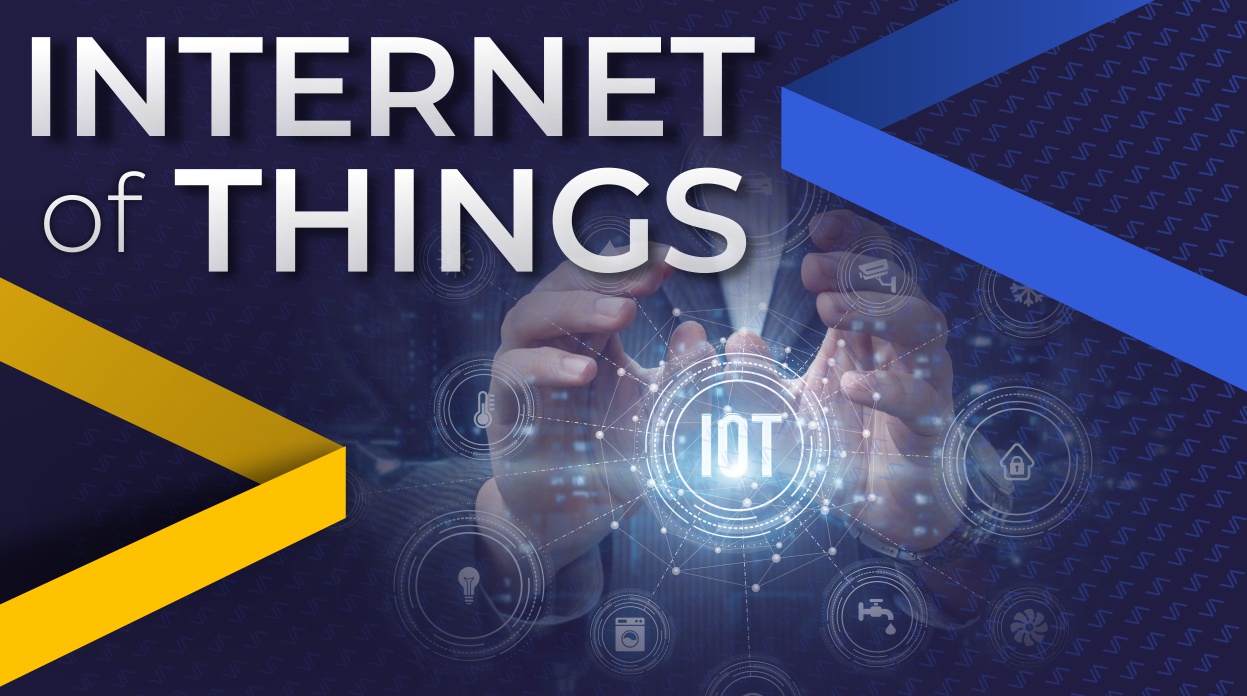Internet of Things (IoT) – How do machines talk?

October 30, 2020 | #selfevolution academy
The concept of networks of connected and "talking" machines dates back to the end of the 20th century. Already then people fantasized about the possibilities offered by synchronization of the equipment and devices around us. Today, 20 years later, this science-fiction idea is becoming a reality. What exactly is the Internet of Things? What impact can it have on everyday life and business in the 21st century?
What is the Internet of Things?
The word "Internet" seems to have become familiar with everyone. It is inseparably associated with a huge web of entities, persons, institutions connected with each other. IoT is also the kind of web, except that communication concerns machines, everyday objects around us, washing machines, refrigerators, microwave ovens or cars. The widespread availability of fast, broadband Internet connection, falling prices, miniaturization means that nowadays even an alarm clock can be connected to the network. This enables mutual communication and data exchange between devices as well as between a device and a person. What's the point? To make your life more comfortable.
What does your alarm clock have to do with a coffee machine?
Let’s use imagination instead of words:
You get out of bed because the above mentioned alarm clock, knowing your schedule, rings exactly when you need it. Your coffee machine also knows when you're getting up, so it made you a freshly ground coffee 5 minutes ago, a radio next door sets up your favourite playlist and a tablet displays a press review with the topics you're interested in. You're leaving for work, and you forgot to close the bathroom window! Fortunately, your car automatically sends out information when you leave the property, which results in the alarm system being armed and windows and doors being secured. The city is congested as always at this time of day, but your car will choose the route that will allow you to get to your destination as quickly as possible. You can always see all the information about your home through the app on your phone. You come back and you find bags full of groceries at the door. But you didn't order anything? You didn't have to, your fridge already did it for you!
With great possibilities...
The slightly exaggerated example above illustrates the direct impact of IoT on an individual's everyday life, which is only a small part of the whole idea. In the near future, this technology will enable the creation of intelligent buildings and even entire cities combined into one huge data exchange system. Intelligent car parks, technical and road infrastructure, systems for monitoring water and air quality or even such a mundane thing as the level of filling of the waste bins. This will contribute to improving the functioning of cities as living organisms, limiting the problems of traffic flow, cleanliness and, as a consequence, will also have a positive impact on the reduction of pollution emissions or electricity consumption.
Step by step, a coherent picture of the already developing "smart" trend emerges. According to estimates by the International Data Corporation (IDC), there will be about 42 billion devices connected to the network in 2025, an increase of more than 100% compared to the current situation. The system will process 79 zettabytes of data (1 zettabyte = 1024*10^3 terabytes). Nowadays, such a data base is a treasure. It allows for far-reaching personalisation, adjusted to the behavioural pattern of potential customers and easier fulfilment of their requirements. But that's not the only aspect where IoT can help with business. Constant supervision of products, from the factory door to the warehouse to the customers' hands, easy access to end users' feedbacks, simplification of remote work and management. Given these arguments, it seems obvious that the "IoT Ready" business has a chance to get ahead of the competition and gain a strong market position faster.
...comes great responsibility
With such a highly developed network, its security becomes a huge problem. Each of its smallest elements, through errors in its structure, can become a gateway to an unimaginable amount of data and information that, in the wrong hands, can lead to a real disaster on a global scale. Therefore, the most important task facing companies developing advanced communication systems is to ensure the highest possible level of security. Being aware of the consequences of a mistake, this aspect must be approached with special care, using all means. Perhaps the answer to these problems is blockchain technology?
What’s next?
The exponential increase of technological possibilities makes us slowly begin to observe the similarity of the world around us to what we could only see in sci-fi films a dozen years ago. Although it will take years to build a whole well-functioning organism based on the Internet of Things, it is already important to educate and be aware of what is being created around us, what consequences it will have, what aspects of our lives will improve and what threats it will bring. It's good to know that even your alarm clock may soon be part of the global network, and a smart TV hanging in the living room is just a shy start!










